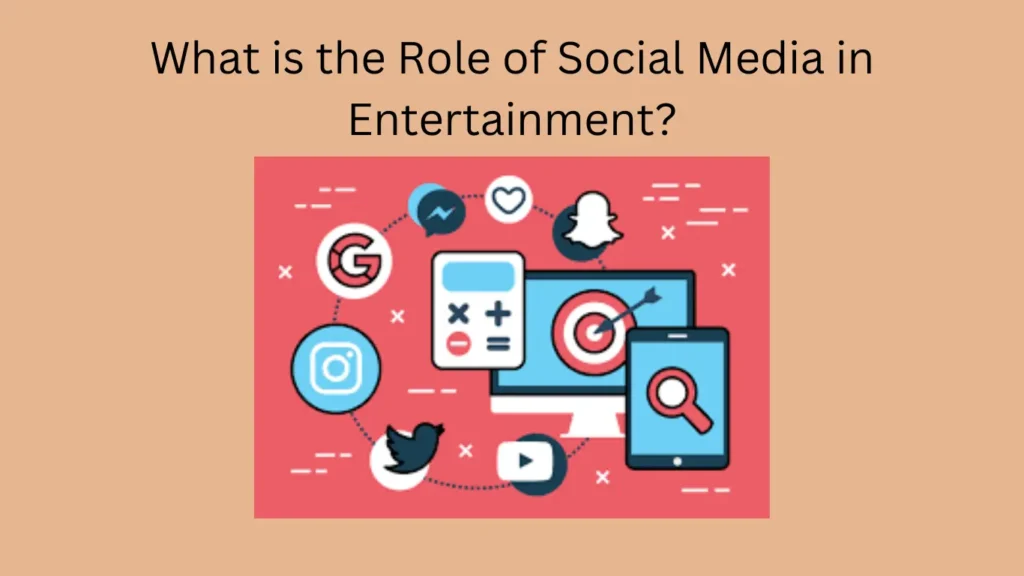Social media has transformed the landscape of entertainment, offering a dynamic platform where content creation, distribution, and consumption converge. This guide explores the pivotal role of social media in the entertainment industry, highlighting how it enhances engagement, accessibility, and creative expression while emphasizing a helpful, reliable, people-first approach.
1. Content Creation and Distribution
Social media platforms like YouTube, Instagram, and TikTok have democratized content creation. Anyone with a smartphone can create and share videos, music, art, and other forms of entertainment. This has given rise to a new wave of content creators who reach millions of viewers without the need for traditional media channels.
Helpful Insight: Aspiring creators should focus on producing high-quality, engaging content that resonates with their target audience. Consistent posting and interacting with followers can build a loyal community.
2. Audience Engagement and Interaction
Social media allows for real-time interaction between entertainers and their audience. Platforms like Twitter and Instagram enable celebrities, musicians, and influencers to connect directly with fans, fostering a sense of community and loyalty. Live streaming features on platforms like Facebook Live and Twitch offer real-time engagement, allowing viewers to participate and interact during broadcasts.
Reliable Approach: Entertainers should prioritize authentic engagement with their audience, responding to comments and feedback to create a more personal connection.
3. Promotional Tool
Social media is a powerful promotional tool for the entertainment industry. Movies, TV shows, music releases, and live events are heavily marketed through social media campaigns. Trailers, teasers, behind-the-scenes content, and interactive promotions (like hashtag challenges) help generate buzz and anticipation.
People-First Strategy: Promotional content should be engaging and interactive, encouraging audience participation and sharing. Authenticity and transparency in promotions build trust and excitement.
4. Trendsetting and Viral Phenomena
Social media is the breeding ground for viral trends and challenges. Memes, dance challenges, and user-generated content can rapidly gain popularity, influencing mainstream entertainment. These trends often originate from platforms like TikTok and Instagram, spreading across other media and influencing cultural conversations.
Helpful Engagement: Participate in trending challenges and create original content that encourages audience involvement. Leveraging trends thoughtfully can enhance visibility and engagement.
5. Accessibility and Diversity
Social media platforms have made entertainment more accessible to a global audience. They provide a space for diverse voices and underrepresented communities to share their stories and talents. This inclusivity fosters a rich and varied entertainment landscape that reflects a broad spectrum of experiences and perspectives.
Reliable Content: Support and amplify diverse voices by sharing and promoting content from different cultures and communities. Highlighting inclusivity enhances the richness of the entertainment industry.
6. Collaborative Opportunities
Social media facilitates collaborations between artists, creators, and brands. Influencers often partner with brands for sponsored content, while artists collaborate on cross-platform projects, blending different forms of media and reaching wider audiences.
People-First Collaboration: Focus on partnerships that align with your values and resonate with your audience. Authentic collaborations can lead to innovative and engaging content.
Conclusion
Social media plays a multifaceted role in entertainment, offering a platform for creation, engagement, promotion, and trendsetting. It democratizes access to entertainment, supports diverse voices, and enables real-time interaction between creators and audiences. By adopting a helpful, reliable, and people-first approach, entertainers can effectively leverage social media to enhance their reach, build strong connections, and contribute to a vibrant and inclusive entertainment landscape.
For further Inquires Contact Us
FAQs
1. How does social media impact content creation in entertainment?
Social media democratizes content creation, allowing anyone to create and share videos, music, and art, reaching millions without traditional media channels.
2. How do entertainers engage with their audience on social media?
Entertainers use platforms like Twitter and Instagram for real-time interaction, fostering a sense of community through comments, live streams, and direct messages.
3. Why is social media important for promoting entertainment content?
Social media campaigns generate buzz for movies, music, and events through trailers, teasers, and interactive promotions, increasing anticipation and engagement.
4. What role does social media play in setting trends in entertainment?
Platforms like TikTok and Instagram are breeding grounds for viral trends and challenges, influencing mainstream entertainment and cultural conversations.
5. How does social media contribute to diversity in entertainment?
Social media provides a platform for diverse voices and underrepresented communities, making entertainment more inclusive and reflective of varied experiences.

